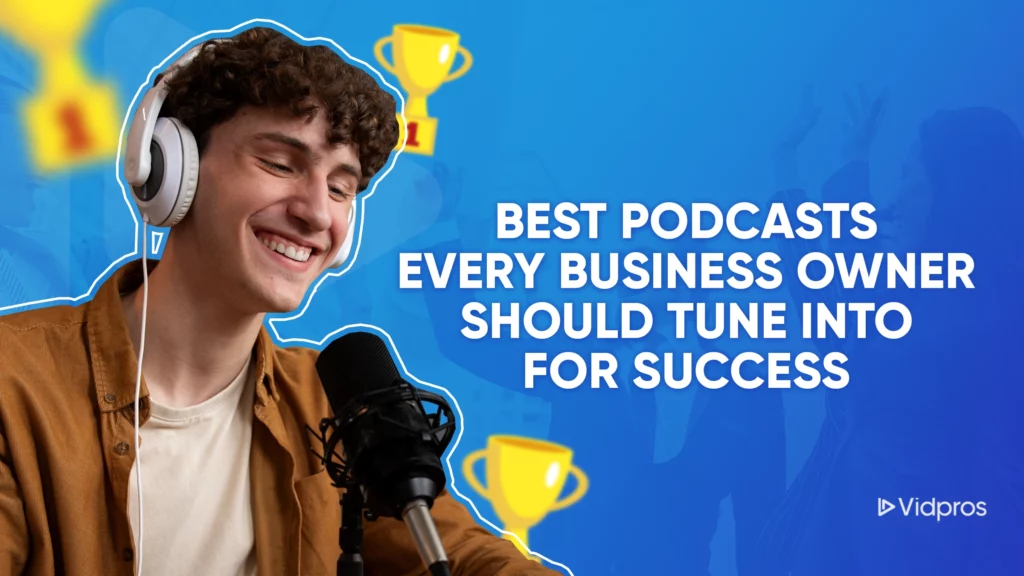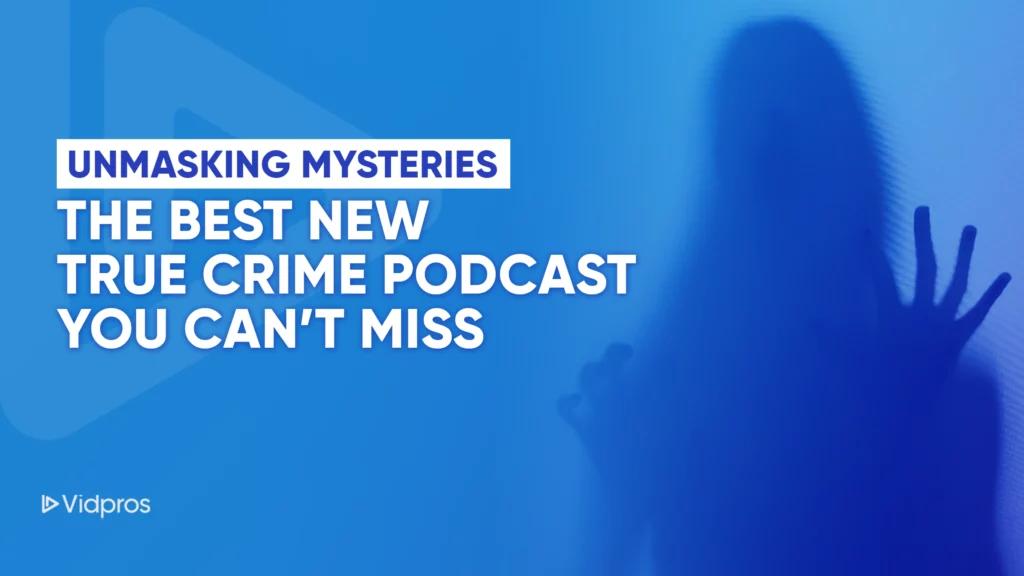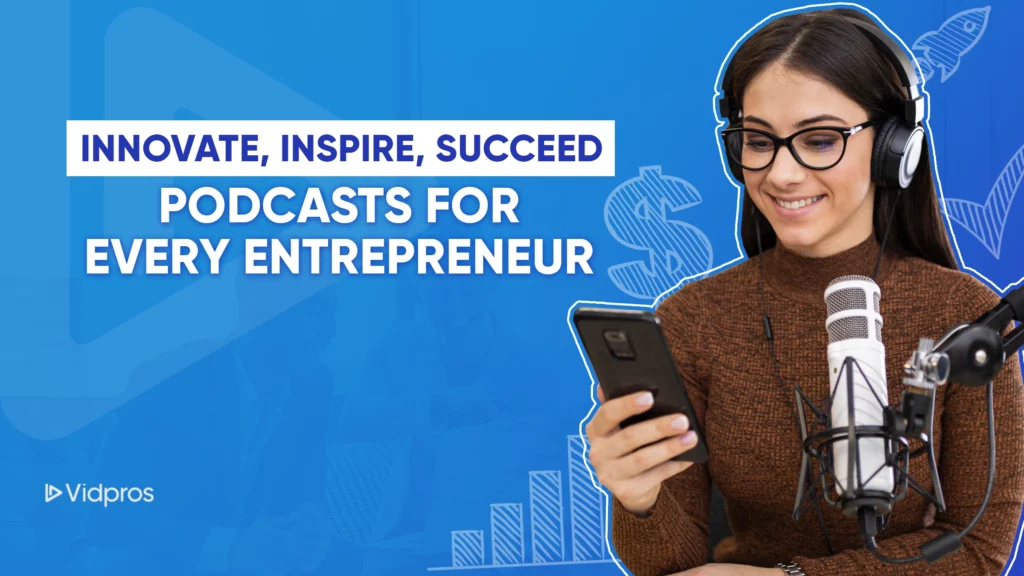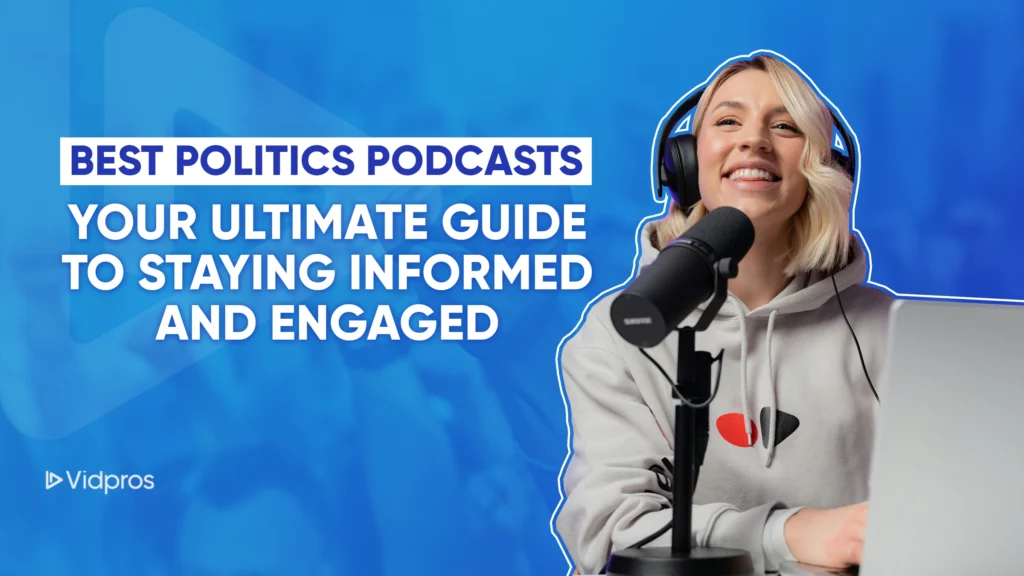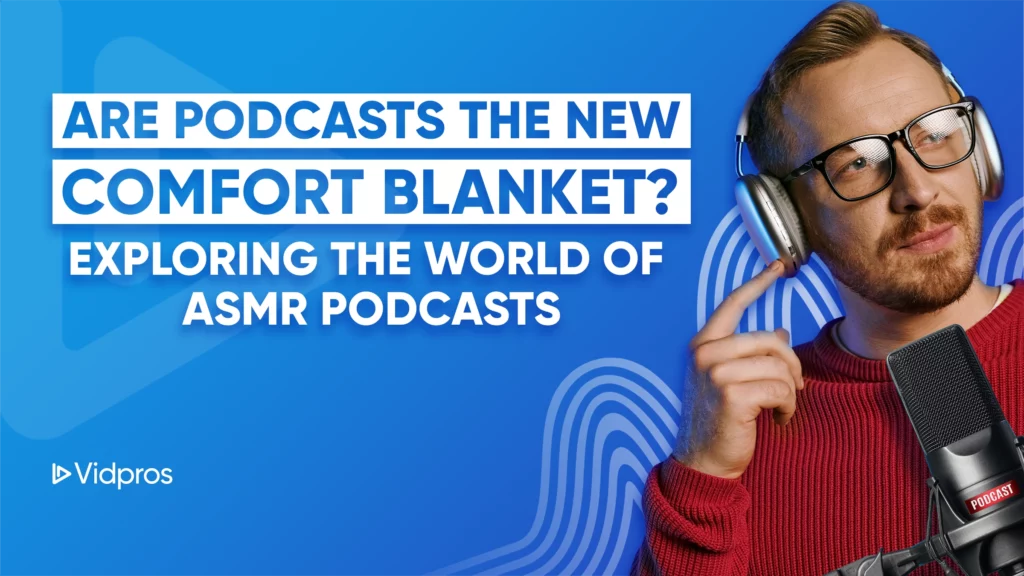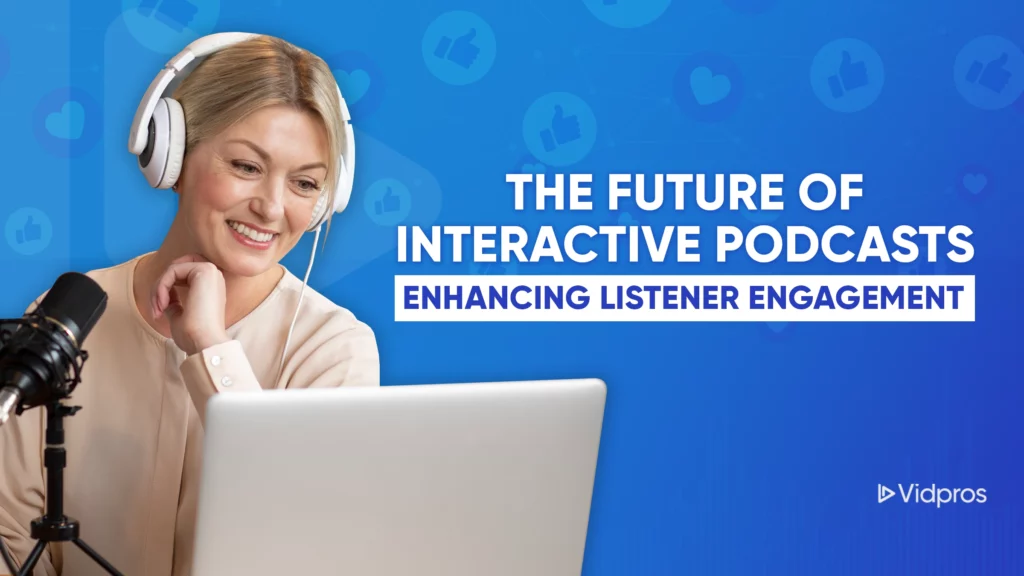Podcasting is among the most effective ways of passing information and entertainment in the current society. Whether you’re a seasoned creator or just starting your podcasting journey, one common question arises: How does one make money from a podcast?
With millions of podcasts out there, it may be challenging to determine which of the podcast platforms for monetization is the best one. But don’t worry, there are many good choices out there to guide you to transform your passion into a good business opportunity.
In this article, you will learn about the 15 best podcast platforms for monetization, their main functions, advantages and disadvantages and how to select the right platform for your needs. Also, we will talk about what you should focus on when choosing a podcast hosting platform for monetization and how to prepare for it.
What Exactly is a Podcast?
A podcast is a digital audio file or a series of such files that can be downloaded or listened to through a web feed. Podcasts include all types of content from entertainment and interviews to educational programs, which makes podcasts a valuable tool for creators to communicate with their listeners and create communities.
Podcast hosting can be done individually or in a team, and are available on Apple Podcasts, Google Podcasts, and Spotify, enabling creators to share content with people all over the world.
In this constantly growing market of podcasts, many podcasters dream of their show becoming a business. Monetization of podcasts entails using advertising, sponsorship, paid subscriptions, and affiliate sales as sources of income. Additionally, understanding YouTube podcast monetization can expand opportunities for podcasters by leveraging video versions of their episodes to reach wider audiences and earn ad revenue.
Crafting a great podcast often starts with preparation. Knowing tips for writing a podcast script—such as keeping it conversational, outlining key points, and leaving room for spontaneity—can elevate the quality of the show and keep listeners coming back for more.
Selecting the right monetization platform is very important for podcasters to be able to organize content and revenue, and turn their passion into a business. In the next section, the reader will be introduced to the best podcast hosting platforms monetization and how to choose the right one.
Things to Consider When Choosing a Podcast Monetization Platform

When selecting a podcast monetization platform, here are some factors to consider:
Monetization Options
Search for the right site that has multiple opportunities for making money online.
Ease of Use
User-friendly platform can help avoid spending time on all those things and let focus on the content.
Storage Limits
Think about how much content you’re going to create and if the platform has an option to store as much as you want.
Analytics Tools
To expand your podcast and attract advertisers, it is crucial to have more profound knowledge of your audience and podcasting metrics.
Marketing Tools
Those that have integrated marketing tools can assist you in marketing your podcast.
Best 15 Podcast Platforms for Monetization

Now that we know what to look for, let’s dive into the best podcast platforms that can help you monetize your podcast.
Anchor.fm
Key Features: Free podcast hosting platform, automated ad insertion, listener support.
Pros: No hosting fees, easy-to-use, monetization tools built-in.
Cons: Limited customization, no direct control over ads.
Best For: Beginners who want an easy and free way to monetize their podcast.
Anchor.fm offers several avenues to monetize your content. You can choose your preferred formula such as:
Automated ads: Ads are automatically inserted during your podcast episodes, and you earn a portion of their revenues.
Paid subscriptions: You can offer exclusive content to paying subscribers only.
Spotify Ads Manager: Spotify offers its own ad management platform to create your campaigns and target specific audiences.
Donations and tips: You can receive one-time or monthly donations from your listeners directly through the platform.
Payments are processed via Stripe and the platform usually takes a fee on all revenues.
Spotify for Podcasters
Key Features: Monetization through ads and sponsorships, listener donations, integration with Spotify.
Pros: Wide audience reach, easy to use.
Cons: Limited analytics for free users.
Best For: Creators who want to tap into Spotify’s massive audience.
Spotify’s podcasting platform gives you access to a global audience while offering monetization tools like ads and listener donations. This platform is great if you’re focused on increasing your visibility and gaining sponsorships.
Podbean
Key Features: Ad marketplace, premium content options, listener donations.
Pros: User-friendly, scalable, robust monetization tools.
Cons: Requires paid plan for advanced features.
Best For: Creators who want flexible monetization options.
Podbean allows creators to generate income through ads, premium content, and listener donations. It’s a great all-in-one solution for podcasters looking to monetize their work.
Buzzsprout
Key Features: Monetization through affiliate marketing, ads, and sponsorships.
Pros: Easy to use, detailed analytics, excellent customer support.
Cons: Limited features on the free plan.
Best For: Creators looking for high-quality analytics.
Buzzsprout allows you to monetize through sponsorships and ads, and its analytics tools provide detailed insights into your audience and podcast performance.
Patreon
Key Features: Crowdfunding through membership tiers, exclusive content for supporters.
Pros: Direct support from listeners, great for community engagement.
Cons: Dependent on your fanbase to generate income.
Best For: Podcasters with a loyal following.
Patreon is one of the best platforms for creators who want to offer exclusive content to paying subscribers. It’s a great way to generate income if you have a loyal audience.
Apple Podcasts
Key Features: Subscription-based monetization, premium content.
Pros: Massive audience reach, trusted platform.
Cons: Subscription feature only available for certain creators.
Best For: Podcasters looking to tap into a large, established audience.
Apple Podcasts is one of the most popular podcast platforms, offering monetization through subscriptions and premium content.
Whop
Key Features: Membership management, community building, recurring subscriptions.
Pros: Comprehensive tools for monetizing exclusive content, seamless integration with platforms like Discord, high customization.
Cons: Best suited for creators with a loyal and engaged audience; less ideal for beginners.
Best For: Established podcasters looking to offer premium memberships or exclusive perks.
Whop allows podcasters to create a subscription-based community with exclusive content, access, and perks. It’s perfect for creators aiming to build deeper relationships with their audience while generating consistent revenue. Whop also supports integrations that make managing members and delivering content effortless, making it ideal for podcasters looking to scale.
Libsyn
Key Features: Monetization through ads, subscription services, and premium content.
Pros: Established platform with a large user base.
Cons: More expensive than other platforms.
Best For: Serious podcasters looking to scale their business.
Libsyn offers a variety of monetization tools and is perfect for podcasters who are ready to take their show to the next level.
Transistor.fm
Key Features: Premium content, ad monetization, private podcasting.
Pros: Unlimited storage, easy-to-use interface.
Cons: Pricing can be steep for beginners.
Best For: Professional podcasters who want robust features.
Transistor is great for podcasters looking for unlimited storage and advanced monetization tools.
Acast
Key Features: Dynamic ad insertion, listener donations, premium subscriptions.
Pros: Strong ad network, professional tools.
Cons: Premium pricing.
Best For: Podcasters with a growing audience and established brand.
Acast offers one of the best ad networks for podcast creators, providing dynamic ad insertion and premium monetization options.
Simplecast
Key Features: Monetization tools, detailed analytics, easy publishing.
Pros: Great analytics and user experience.
Cons: Pricing can be expensive for beginners.
Best For: Podcasters focused on data and growth.
Simplecast is an excellent platform for podcasters looking for detailed insights and growth tools, though it can be pricey for new podcasters.
SoundCloud
Key Features: Monetization through ads, subscriptions, and donations.
Pros: Wide reach, great for independent creators.
Cons: Limited monetization features for free users.
Best For: Independent creators who want a massive audience.
SoundCloud is another popular platform for musicians and podcasters alike, offering monetization through ads and fan donations.
Spreaker
Key Features: Monetization through ads, listener donations, paid subscriptions.
Pros: Wide range of monetization options.
Cons: Ads might not generate significant revenue for small creators.
Best For: Creators looking for multiple revenue streams.
Spreaker offers several ways to monetize, from ads to paid subscriptions, making it ideal for those seeking flexibility.
RedCircle
Key Features: Ads, listener donations, cross-promotion marketplace.
Pros: Great for growing creators, ad marketplace.
Cons: May not be suitable for large, established podcasts.
Best For: Emerging podcasters who need help growing their audience.
RedCircle is a great platform for podcasters looking to monetize early on, with options like ad revenue and listener donations.
Podyssey
Key Features: Ads, premium content, audience insights.
Pros: Focused on community and growth.
Cons: Limited ad opportunities.
Best For: Creators who prioritize community engagement.
Podyssey offers unique community-building tools that help podcasters connect directly with their listeners, adding value to their monetization strategies.
How Do You Monetize a Podcast?

Monetizing a podcast is the process of turning your content into a source of income. While it can take time and effort to build an audience, there are various strategies to earn revenue from your podcast once you have a solid listener base. Here are the most common and effective methods:
Advertising
Advertising is one of the most popular ways to monetize a podcast. This involves selling ad space on your podcast to sponsors or ad networks. There are a few ways to incorporate ads:
-
Pre-roll Ads: These are ads that play at the beginning of your podcast episode.
-
Mid-roll Ads: These are ads inserted in the middle of your podcast, usually during a natural break.
-
Post-roll Ads: These ads play at the end of your episode.
Many podcasters work directly with sponsors or use ad networks like Midroll or Podcorn, which help connect podcasters with brands that want to advertise. The more listeners you have, the higher your potential for securing higher-paying sponsors. Ad rates are typically based on the number of downloads your episodes receive, with CPM (cost per thousand impressions) being the standard pricing model.
Pro Tip: As your podcast grows, you may be able to command higher rates for ads, especially if you have a niche audience with high engagement. Some podcasters even create bespoke ads for their audience, which can help in building a deeper connection with their listeners.
Subscriptions
If you want to offer exclusive content to your most dedicated fans, subscription-based monetization is a great option. By creating premium content, you can encourage listeners to pay a subscription fee to access bonus episodes, early releases, ad-free content, or special interviews.
Platforms like Apple Podcasts and Patreon allow you to set up paid subscriptions for your podcast. These platforms usually allow you to segment your content into free and paid tiers, so you can continue to grow your audience while providing more value to your paying subscribers.
Pro Tip: Offering members-only perks, such as access to a private podcast feed, behind-the-scenes footage, or direct engagement with you, can incentivize your audience to pay for a subscription.
Donations and Crowdfunding
Crowdfunding and donations provide a way for listeners to support your podcast directly. Platforms like Patreon and Buy Me a Coffee allow creators to collect one-time or recurring donations from their audience in exchange for exclusive content, shout-outs, or other benefits.
Another approach is running a crowdfunding campaign on platforms like Kickstarter or GoFundMe. If you are launching a new podcast season or special project, crowdfunding can help you raise the necessary funds.
Pro Tip: You can offer rewards for donations, such as personalized shout-outs, exclusive content, or early access to new episodes. Building a sense of community around your podcast will encourage your listeners to contribute.
Merchandising
Selling branded merchandise is another great way to generate revenue from your podcast. Fans who love your podcast may be interested in purchasing products that help them show off their fandom. Common items include:
-
T-shirts, hoodies, and hats with your podcast’s logo or catchphrases.
-
Mugs, water bottles, and tote bags featuring podcast branding.
-
Limited edition items that relate to specific episodes or seasons.
Websites like Printful or Teespring allow you to create and sell merchandise without upfront costs. These platforms handle the production, shipping, and customer service, so you don’t have to worry about logistics.
Pro Tip: Incorporate your audience into the merchandising process. For example, you could run a poll or contest to design a new product, which would increase engagement and create a deeper connection between you and your listeners.
5. Affiliate Marketing
Affiliate marketing is a great way to earn revenue by promoting other people’s products or services. As a podcast creator, you can promote products that align with your content and interests. When your listeners make a purchase through your affiliate link, you earn a commission.
There are several affiliate programs that podcasters can join, such as Amazon’s Affiliate Program, ShareASale, or CJ Affiliate. You can mention affiliate products in your episodes, incorporate them into relevant segments, or recommend them to your listeners.
Pro Tip: To succeed with affiliate marketing, make sure you only promote products that are genuinely useful to your audience. Your listeners trust you, so recommending products that align with their needs and values will increase your chances of earning commissions.
Paid Partnerships
Paid partnerships involve collaborating with brands for sponsored content or promotions in your podcast. This can take many forms, such as:
-
Sponsorships: A brand sponsors an entire episode or series of episodes, and you mention their product or service.
-
Product Placement: You integrate a brand’s product directly into your content, either through ad reads or by featuring it naturally within your podcast.
-
Branded Content: A brand collaborates with you to create an episode around their product, often offering compensation for the time and effort involved.
Paid partnerships can be highly lucrative, especially if you have a large and engaged audience. Some podcast creators negotiate their own partnerships, while others may work with agencies that connect creators with brands seeking exposure.
Pro Tip: Be transparent with your audience about paid partnerships. Authenticity is key, and listeners appreciate honesty when it comes to sponsored content. Clearly disclose when a segment is sponsored, and only partner with brands that fit your values and content style.
Things to Remember When Monetizing Your Podcast
-
Consistency is Key: To successfully monetize, you need to regularly publish high-quality episodes and grow your listener base.
-
Audience Engagement: The more engaged your audience is, the more opportunities you have to monetize. Encourage listener interaction through social media, emails, or by asking for feedback.
-
Diversify Your Income Streams: It’s wise to use multiple monetization methods simultaneously to maximize your earnings.
-
Track Your Performance: Use advanced analytics tools provided by hosting platforms to monitor the performance of your episodes. This will help you identify what works best for monetization.
Conclusion
Monetizing your podcast is a multi-step process that requires choosing the right platform. The best podcast platform for monetization will depend on your goals, your audience, and your level of experience. Whether you’re looking for a simple ad-driven model or more advanced subscription-based monetization, there’s a platform out there to suit your needs.
As you grow your podcast, platforms like Vidpros can help you enhance your content in your podcast journey through podcast video editing. Vidpros specializes in crafting high-quality videos to accompany your podcast episodes, boosting both your visibility and income potential.
So, if you’re ready to take your podcast to the next level and start earning from your content, consider working with Vidpros for professional video production and editing to elevate your podcast today!







